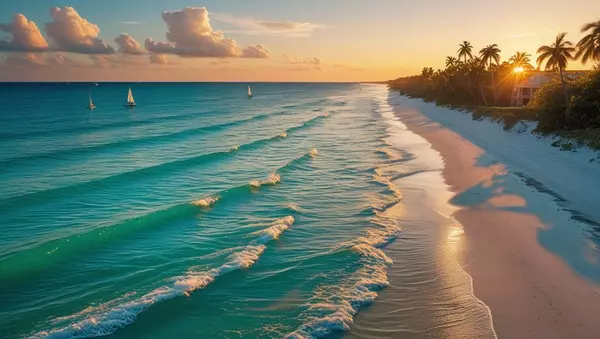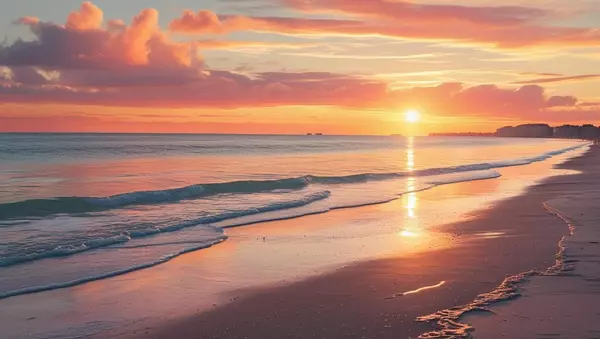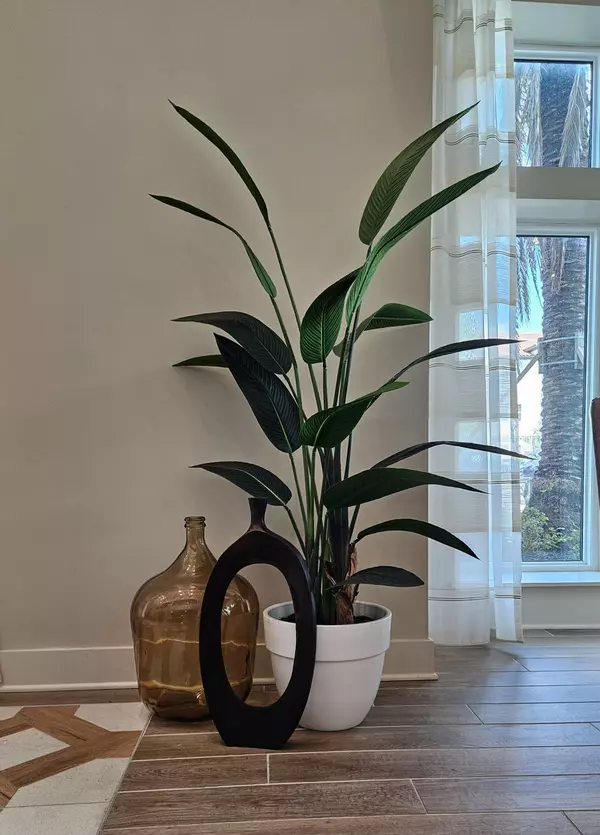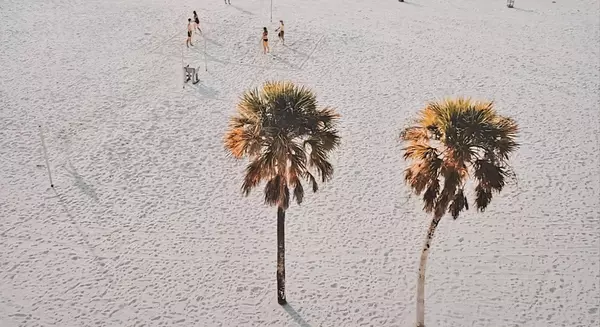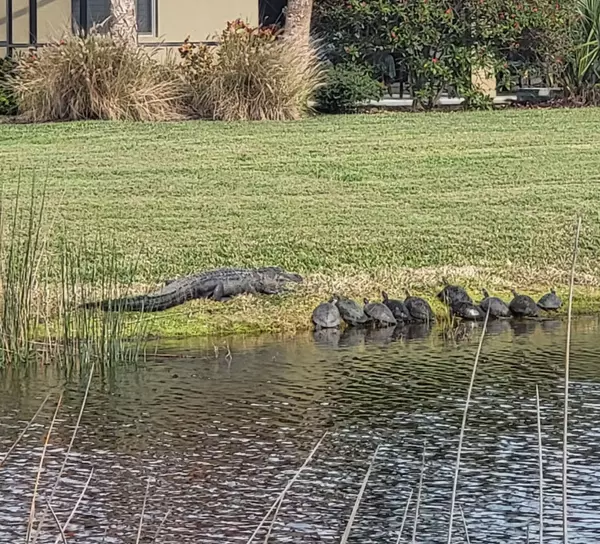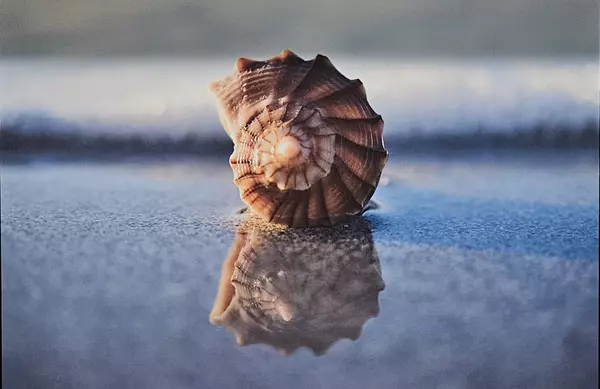Alligators, Snakes, and Sunshine: Staying Safe and Enjoying Nature in Venice, FL
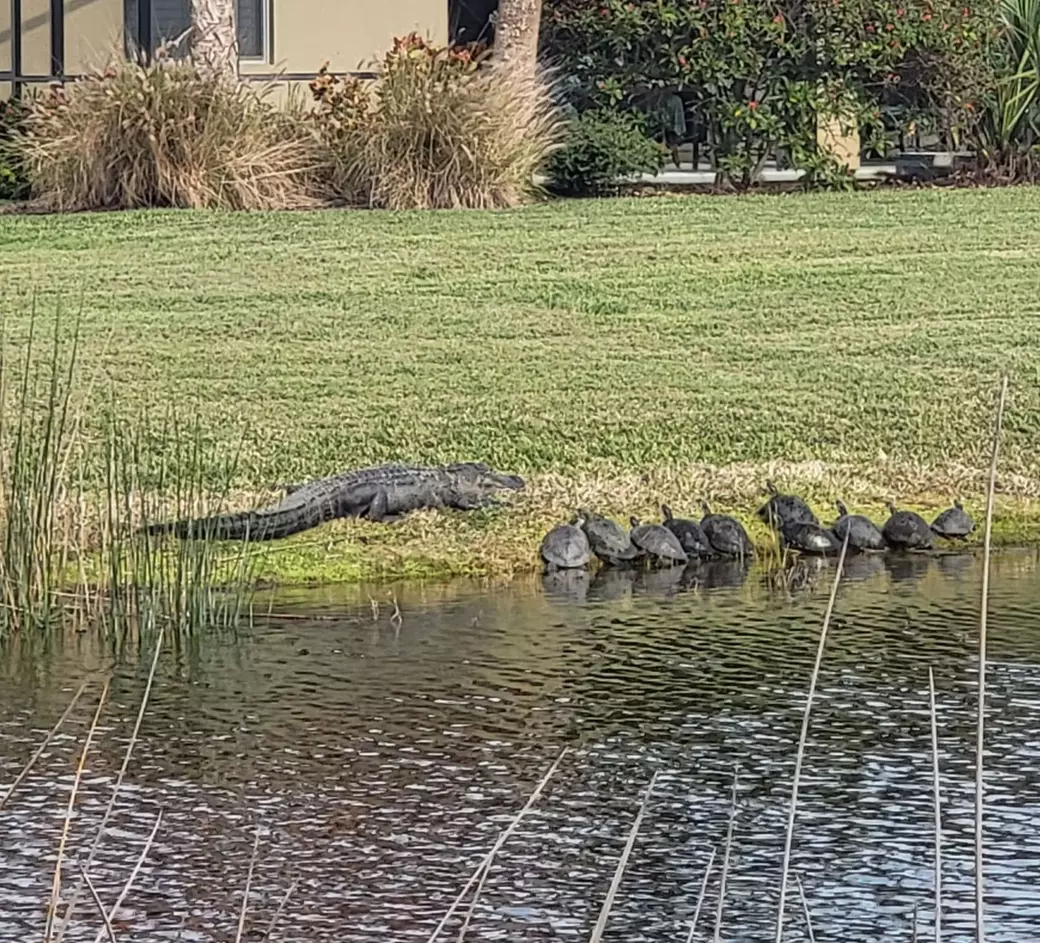
Alligators, Snakes, and Sunshine: Staying Safe and Enjoying Nature in Venice, FL
So, you're making the move to Venice, Florida! Congratulations! You're likely dreaming of pristine beaches, endless sunshine, and a relaxed pace of life. But if you're like many newcomers from up north, a little whisper in the back of your mind might be asking, "What about the wildlife? Am I going to trip over an alligator or step on a snake every time I go outside?"
I hear you! It's a common concern for future Floridians. Let me assure you, while Venice is indeed teeming with incredible wildlife, living safely and enjoying nature here is entirely possible and immensely rewarding. It's all about understanding the reality and knowing a few basic precautions.
The Realities: Alligators & Snakes (Don't Panic!)
Yes, alligators and various snake species live in Florida, including around Venice. This is their natural habitat. However, direct dangerous encounters are relatively rare, especially if you follow common-sense rules.
- Alligators:
- Where they live: Alligators prefer freshwater environments like lakes, ponds, rivers, canals, and retention ponds (those watery areas in neighborhoods and golf courses). They can also tolerate brackish water, so you might spot one in the Intracoastal Waterway or even very occasionally near a river mouth close to the Gulf, but they are not typically in saltwater ocean environments.
- Reality Check: They are generally shy and will avoid humans. They are most active at dawn and dusk.
- My Experience: I've seen them in retention ponds during walks, or walking across the street to get to the next retention pond, but always from a safe distance. They usually just bask in the sun or slowly glide through the water, seemingly uninterested in people.
- Snakes:
- Where they live: Snakes can be found in various habitats, from wooded areas and tall grasses to suburban yards. Florida has both venomous and non-venomous species.
- Reality Check: Most snakes you'll encounter are non-venomous and harmless. Venomous snakes (like rattlesnakes, cottonmouths, coral snakes, and copperheads) are more reclusive.
- My Experience: I've seen a few snakes, usually harmless black racers darting away quickly in natural areas. In manicured yards, they'll sometimes come onto the lanai but quickly look for a place to exit.
Staying Safe: Essential Precautions
Knowledge and awareness are your best defenses. The Florida Fish and Wildlife Conservation Commission (FWC) is your go-to resource for safety guidelines.
- For Alligators:
- Keep your distance: Always maintain a safe distance (at least 20 feet) from alligators. Never approach one, even a small one.
- Never feed alligators: It's illegal and teaches them to associate humans with food, making them dangerous.
- Swim in designated areas: Only swim during daylight hours in clear, designated swimming areas.
- Keep pets on a leash and away from water: Pets often resemble an alligator's natural prey. Don't let them drink or swim in areas where alligators might be present.
- Don't let children play unsupervised near water: Supervise children closely when they are near any body of water.
- Report nuisance alligators: If an alligator becomes a threat to people, pets, or property, report it to the FWC's Nuisance Alligator Hotline at 866-FWC-GATOR (866-392-4286).
- FWC Alligator Safety: MyFWC.com/Alligator
- For Snakes:
- Watch your step: Be aware of your surroundings, especially when walking in tall grass, wooded areas, or near water.
- Don't reach into dark, unseen areas: Use caution when reaching into dense vegetation, under logs, or into crevices.
- Leave snakes alone: Most snake bites occur when people try to harass, handle, or kill a snake. Give them space.
- Identify venomous snakes: Learn to recognize the common venomous snakes in Florida, but remember: if you don't know, assume it's venomous and keep your distance.
- Seek medical attention: If bitten by a snake, seek immediate medical attention.
- FWC Living with Snakes: MyFWC.com/Snakes
The Wonders: Other Wildlife You'll Absolutely Love!
While the "dangerous" wildlife gets the headlines, Venice is absolutely brimming with incredible, beautiful, and often awe-inspiring creatures you'll have the privilege to see regularly. This is where the magic truly happens!
- Manatees: These gentle giants are a joy to behold. You can often spot them in canals, near boat docks, or in warmer waters during cooler months. Their slow, deliberate movements are incredibly peaceful.
- Where to spot them: Look for their "footprints" (circles on the water's surface) or their noses breaking the surface. They often congregate near the Venice Inlet.
- Dolphins: Pods of dolphins are a common sight in the Gulf and the Intracoastal Waterway. Watching them leap and play in the waves is a constant delight that never gets old.
- Where to spot them: Often seen from the Venice Fishing Pier, on boat tours, or simply swimming off the beaches.
- Sea Turtles: During nesting season (May-Oct), you might see large female turtles coming ashore at night to lay eggs, or tiny hatchlings making their desperate dash for the ocean (from a respectful distance, of course!).
- Important: Remember our Beach Rules – no lights, fill holes, don't disturb nests!
- Abundant Birdlife: Venice is a birdwatcher's paradise. You'll see:
- Pelicans: Gracefully gliding over the water or perched on pilings.
- Ospreys: Often spotted high in nests on utility poles, diving spectacularly for fish.
- Herons & Egrets: Elegant waders in the shallows.
- Ibis: With their distinctive curved beaks.
- Rosy Spoonbills: Strikingly beautiful pink birds often seen in wetlands.
- Shorebirds: A myriad of species scurrying along the tideline.
- Where to spot them: Everywhere! On the beaches, around ponds, in nature preserves like Oscar Scherer State Park, or along the Venetian Waterway Park.
- Gopher Tortoises: These land turtles dig extensive burrows and are a protected species. You'll often see their burrows and spot them munching on greens in sandy areas, especially in undeveloped lots or parks.
- Fish & Marine Life: The waters around Venice are teeming with diverse fish, making it a popular spot for fishing and snorkeling. You might even spot a horseshoe crab on the beach!
Moving to Venice means embracing a unique ecosystem. By understanding the common behaviors of wildlife and following a few simple safety rules, you'll find yourself not worrying, but instead constantly amazed and delighted by the incredible natural world that is now your backyard. Welcome to nature's wonderland!
Categories
- All Blogs (73)
- Cost of Living in Venice, FL (3)
- Dog Friendly (1)
- Downtown Venice, FL (1)
- Golf in Venice, FL (1)
- Healthcare in Venice, FL (1)
- Job Opportunities in Venice, FL (1)
- Legal Considerations (9)
- Lifestyle and Culture (4)
- Move to Venice, FL (24)
- Nearby Areas & Comparison Guides (7)
- Neighborhoods in Venice, FL (15)
- Property Taxes in Venice, FL (2)
- Relocation Questions & Miscellaneous Topics (15)
- Retire in Venice, FL (5)
- Schools in Venice, FL (2)
- Things to do in Venice, FL (7)
Recent Posts



